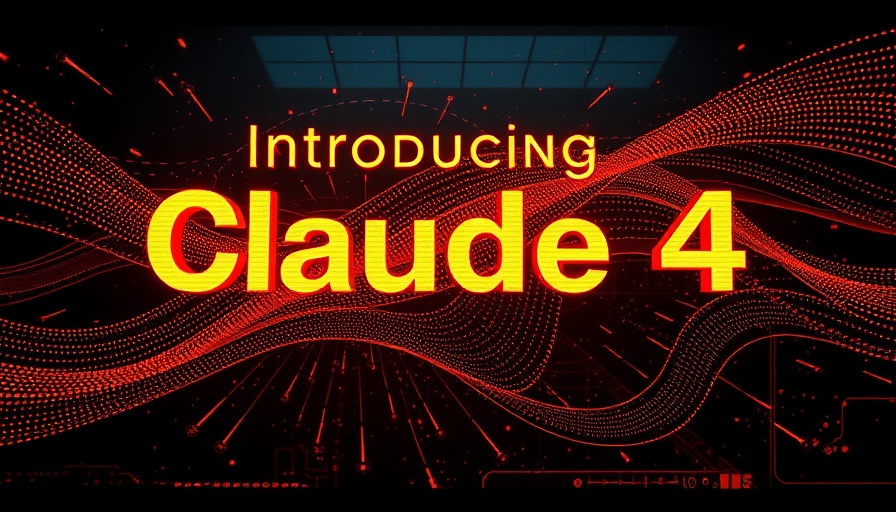
Innovation Awakens: Claude 4 Models Redefine Coding
The world of artificial intelligence is in a constant state of evolution, and the recent launch of Claude 4 models, including Opus and Sonnet, underscores this rapid transformation. Designed by Anthropic, these cutting-edge AI tools are proving to be game-changers in coding capabilities, setting exceptional benchmarks that demand attention from developers and tech enthusiasts alike.
In Claude 4 Sonnet & Opus: BEST AI Coding LLM Ever! INSANELY POWERFUL!, the discussion dives into the latest advancements in AI coding technology, prompting us to explore their implications on the software development landscape.
Unleashing the Power of Claude 4 Opus
Coming in as the flagship model from Anthropic, Claude 4 Opus scored an impressive 72.5% on the Sway Bench, showcasing its advanced reasoning and long-term task engagement. What sets Opus apart is its unique ability to maintain memory across tasks, meaning it can remember critical information over extended sessions—making it ideal for complex software development workflows.
Imagine playing Pokémon while having Opus autonomously generate a navigation guide, noting essential points as they come up! This kind of real-world application solidifies Opus as a revolutionary tool that goes beyond simple coding; it taps into creativity and long-term planning.
The Versatility of Claude 4 Sonnet
While Opus is the heavyweight champion, Claude 4 Sonnet stands as its agile counterpart, improving upon the previous Sonnet 3.7 model. Scoring 72.7% on the Sway Bench, Sonnet enhances performance speed while retaining reliable execution in tasks. Its hybrid mode allows users to switch between quick responses and deep reasoning, making it an effective tool for both beginners and seasoned developers.
Impact on the Future of Software Development
As AI continues to dictate the future of coding and software development, the introduction of Claude 4 models sparks critical discussions about ethics and the implications of such powerful technologies. With the dual capabilities of Opus and Sonnet, organizations are urged to consider how they craft an ethical framework around AI deployment. This involves understanding not only performance and usability but also how AI impacts human rights and privacy.
Embracing AI in the Workplace
Organizations willing to integrate Claude 4 models into their operations stand to benefit significantly. The potential to improve customer experiences, streamline business operations, and foster innovation is evident. With capabilities like enhanced reasoning and contextual memory, these AI tools will likely become invaluable assets in various industries—from tech startups to established corporations.
In a tech landscape where speed and efficiency are paramount, Claude 4 models demonstrate a thrilling glimpse into the future of software development. As they pave the way for new possibilities, developers and companies alike must adopt these advancements carefully, ensuring that ethical considerations remain at the forefront.
As we explore this revolutionary frontier, consider how AI could transform your own coding practices. Would leveraging such powerful tools aid your workflow and foster creativity? Now is the time to explore the possibilities!
 Add Row
Add Row  Add
Add 




 Add Row
Add Row  Add
Add 



Write A Comment